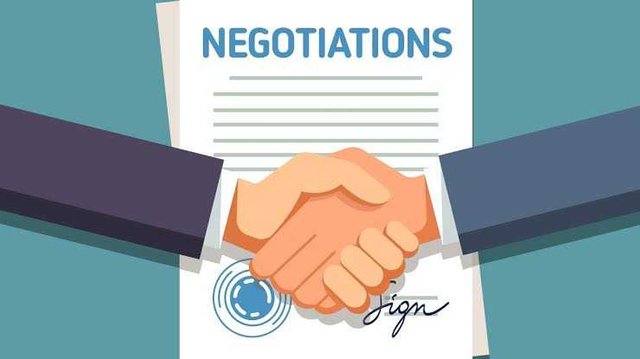
Negotiators can have different goals, even multiple goals. For example, when you negotiate the purchase of a new car, you typically focus on paying as low a price as possible. In other negotiations, your goal may be to beat your counterpart or to reach an agreement as quickly as possible. In yet other negotiations, you may want to improve your relationship with your counterparts even if that comes at some cost to your short-term interests.
It may seem obvious that negotiators should have their goals clearly in mind before commencing a negotiation, but many don’t abide by this most basic rule. Many negotiators start the process before identifying precisely what they wish to achieve, much less how to achieve it. Moreover, unless you have a very clear understanding of what the goal is, you run the danger of becoming confused in the excitement of the negotiation. Indeed, negotiators often lose sight of their original goal and either focus only on getting more than their counterpart or resort to a quick agreement to avoid an uncomfortable situation.
As mentioned in my earlier post, negotiators have an affinity for reaching agreements, yet agreements do not always equal success. Indeed, a successful negotiation is one in which you get more of what you want—not one in which you just arrive at an agreement.
If your assessment of a good deal shifts to one where you simply reach an agreement with your counterpart, you have not only redefined success, but also put yourself in a position where you may end up with less of what you want. Once your counterpart recognizes that you merely want to reach an agreement, he will have a great advantage, primarily because it will allow him to claim a larger amount of any surplus created in exchange for your highly valued outcome: an agreement. I strongly advise you to guard against such a shift during a negotiation.

To avoid losing sight of your original goal and simply negotiating to reach an agreement, you need to know what a good deal is—and what it is not. This means that you must understand and value the issues that you consider important. You must establish your reservation prices(i will explain what this means later in this post) and your aspiration. And you must do so in a manner that keeps you from losing focus on those goals and aspirations.
ESTABLISH THE PARAMETERS OF YOUR NEGOTIATION

To begin to define the parameters of the negotiation, you need to determine the worst possible outcome you are willing to accept. This is your reservation price. It is the point where you are indifferent between saying yes and taking your alternative. Obviously, to determine where that tipping point is, you must also assess your alternatives; what will happen if this negotiation ends in an impasse.
The most obvious (and common) alternative is the status quo—what your situation was like before you started the negotiation. However, your alternatives can also be other deals with other negotiators. Collectively, your alternatives represent your safety net, or what you will get if you walk away from the present negotiation, and rationally, you should not agree to an outcome that is worth less than your alternatives.
Obviously, the better your alternatives, the more willing you will be to walk away from the negotiation and hence the more—on average—you will be able to claim if agreement is reached. Therefore, one of your most immediate sources of power is the value of your alternatives. In essence, alternatives force your counterpart to “pay” you at least the value of your alternatives to stay in the negotiation.
Thus, the single most important aspect of your preparation before entering into any negotiation is to establish your alternative: What are your options if no agreement is reached?
Of course, your counterpart will also have alternatives that empower him/her to walk away, potentially forcing you to “pay” him/her to stay in the negotiation. Indeed, research shows that the negotiator with the better alternative—on average—claims more of the value in the negotiation.
In Summary, you should learn to identify what the goal of your negotiation is. Understanding the outcome you intend to get from a negotiation is very vital in making decisions that will either build or break your negotiations.


One needs to have a clear insight on the product and also have an idea on the do's and don't s of the negotiator this will provide an higher advantage for the negotiation process
Downvoting a post can decrease pending rewards and make it less visible. Common reasons:
Submit
That's true buddy
Downvoting a post can decrease pending rewards and make it less visible. Common reasons:
Submit
In marketing of product, one must not neglect the aspect of effective negotiation. Effective negotiation can help to win customers and helps to convince buying
Downvoting a post can decrease pending rewards and make it less visible. Common reasons:
Submit